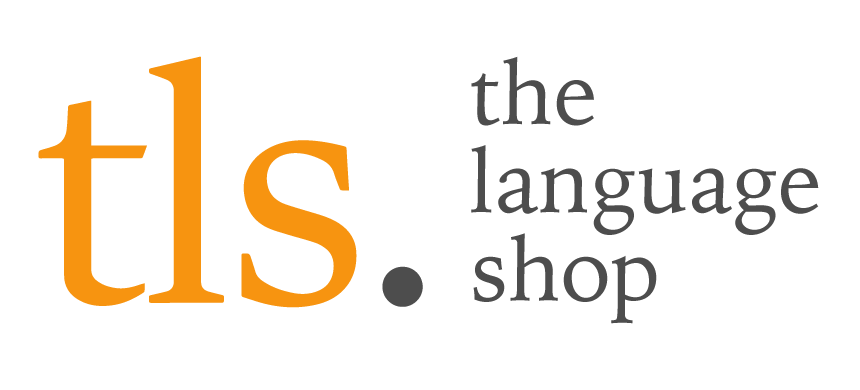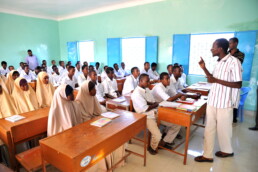Remote interpreting: best practice hints and tips
Since the Covid-19 pandemic outbreak, our remote interpreting services have continued to grow in popularity, whether by telephone or video, scheduled or on demand.
This relatively new way of working comes with its own set of requirements and best practices – here is some advice on how to get the most from your remote interpreting booking:
- Are you sure of your wifi connection? If not, have a contingency plan in place, e.g. switching from video to telephone if necessary. Hint: lowering the quality of your video feed in settings can help with connection issues.
- As with face to face bookings, make sure the space you’re in is quiet and private.
- Use headphones to improve sound quality and ensure confidentiality.
- Use a separate device from your service user where possible. When using video, the interpreter must be able to easily see all parties.
- When using video, agree beforehand how all parties must signal their turn to speak, e.g. by raising their hand. Using telephone interpreting, establish how the conversation will be run at the beginning of the booking.
language fact file: Hindi
Spoken widely in: India, Nepal, Mauritius, Fiji and many others.
Number of native speakers: approximately 615m!
Learn some: There are a number of ways to greet someone warmly in Hindi. ‘Namaste’ and ‘namaskar’ are quite traditional and respectful, as is ‘salaam’, but all are widely used. If you want to be more casual, you can use ‘kaise ho’ (pronounced keh-se hoh) to greet a man or ‘kaisi ho’ (pronounced keh-see hoh) to greet a woman.
Fast facts:
- Hindi is the fourth most widely spoken language in the world, after Mandarin, Spanish and English. In addition to being an official language in India and Fiji, it is spoken by Indian diasporic communities all over the world. There are large Hindi-speaking populations in England, Trinidad and Tobago, the US, Canada, Mauritius, South Africa and parts of the Middle East.
- Hindi’s written language system, Devanagari, contains 36 consonants and 11 vowels. This makes it simpler than English to read aloud, as words are spelled exactly as you pronounce them.
- As an English speaker, you already know loads of Hindi words! Everyday words we have adopted from the language are: avatar, bandanna, bungalow, dinghy, guru, jungle, khaki, karma, loot, mantra, nirvana, punch, pyjamas, sorbet, shampoo, thug, typhoon and yoga.
Staff Member’s Story: Katy Frankland, TLS bookings team
This month, we would like to introduce one of our team who works behind the scenes to keep our customers supplied with linguists: meet Katy Frankland, one of the TLS bookings team.
“I work for the ODI team for TLS. This mostly involves answering calls from the booking officers, taking their details and sourcing and connecting an interpreter to match their needs. We also have to assist with pre-booked appointments and general enquiries from both the requesters and the interpreters."
“The role has evolved greatly since I first started in October 2022. There have been great improvements to the IT systems we use, and it is definitely a lot busier. It can be hard work when it is call after call but it is satisfying to interact with the interpreters and learn about them and their cultures."
“I work from home so it’s good to have the great back up team to assist with our enquiries."
“I have had short term work in France and Holland and worked in Tenerife for 9 years, so I have an interest in languages. I have two sons: Daniel who is 16 and Olly who is 14 - and Gary the cat. I live in Baildon in West Yorkshire but I am a massive Everton supporter."
“My proudest moment so far has been going to see my son pass out in the Royal Navy last month. I hope to have many more years working here with all the lovely staff at TLS.”
Vista: an upgrade to improve your experience
Our Operations Team is always looking at ways to make your interactions with TLS even easier - so you may have noticed that our tailored bookings system, VISTA, has had a little makeover. Here is what we have changed:
- Streamlined Navigation Menu: we’ve enhanced the menu icons with descriptive text to guide you through our platform.
- Everything you need in one place: no more searching or scrolling - everything you need is always visible in the navigation menu.
- Options for Create New, Future and Past bookings are now positioned for quicker access, ensuring you can create or manage your bookings quickly, no matter where you are in the system.
- Your personal access code and our On-Demand contact number are now always visible in the top left corner of the navigation menu.
- Upgraded Booking Overview: a more comprehensive view of your bookings with enhanced details, including booking status, all at a glance.
Any feedback on our changes or VISTA? Speak to your account manager or email bookings@languageshop.org
On the calendar - important dates for your calendar (May)
20/21 – Litha, Pagan/Wiccan
Litha marks the summer solstice – the longest day of the year. For pagans, it is a celebration of the sun and the light and energy it brings to all life. Many celebrate by lighting bonfires or staying up all night to watch the sun rise. There is a big celebration of the solstice every year at Stonehenge, where the famous stones align perfectly with the rising sun.
22 – UK Windrush Day
Every year, Windrush Day marks the anniversary of the first 800+ post-War Caribbean migrants’ arrival in Britain, on HMS Windrush.
At the time of arrival these migrants were British subjects who were invited to help rebuild the country after WW2. However, many of these people later had their citizenship wrongly removed in what is known as the Windrush Scandal. Windrush Day honours their contribution and highlights the injustices of the scandal. Small grants are available to community groups wishing to celebrate the day; read more here.
FREE online events
Regional health inequalities Tickets, Wed 5 Jun 2024 at 13:00 | Eventbrite Three ten-minute talks covering the health inequalities between the English regions.
Supporting Men’s Health in the Workplace Tickets, Mon, Jun 10, 2024 at 1:30 PM | Eventbrite Looking at core issues affecting mens’ health in the workplace and how to better support men at work.
June’s dates at a glance:
Religious/Cultural
5 – Yom Yerushalayim, Judaism
7 – Feast of the Sacred Heart of Jesus, Catholic Christian
12-13 – Shavuot, Judaism
13 – Feast of the Ascension, Orthodox Christian
15-19 – Hajj, Islam
16 – Waqf Al Arafa, Islam
16 – Martyrdom of Guru Arjan Dev, Sikh
17-20 – Eid Al-Adha, Islam
20 – Litha, Wicca and Pagan
22 – Saturday of Souls, Orthodox Christian
23 – Pentecost, Orthodox Christian
24 – Nativity of Saint John the Baptist, Christian
25 – Eid Al-Ghadir, Islam
29 – Feast of Saints Peter and Paul, Christian
Awareness and Events
4 – International Day of Innocent Children Victims of Aggression
8 – Global Wellness Day
9 – Race Unity Day
10-16 – Men’s Health Week
12 – World Day Against Child Labour
15 – World Elder Abuse Awareness Day
16 – Father’s Day
17-23 – Refugee Week
18 – Autistic Pride Day
20 – World Refugee Day
20 – Summer Solstice
22 – UK Windrush Day
24-28 – School Diversity Week
27-28 – TUC's LGBT+ Conference
In other news: stories from the language industry and beyond (May)
DEI is a lightning rod for controversy – but the practice isn't dead - BBC Worklife A look at DEI initiatives in the workplace in the context of continuing debate about their place.
North East firefighters to learn life-saving sign language skills - BBC News BSL training has been rolled out to the Tyne and Wear Fire and Rescue Service after two visits to schools with Deaf children highlighted the need to improve communication skills.
Language Fact File - Somali
Spoken in: Somalia, Ethiopia, Djibouti and northeastern Kenya.
Number of native speakers: 24 million
Learn some: Greet a long lost friend with ‘Wakhti dheer kuma arag!”, which means ‘long time, no see’.
Fast facts:
- The Somali language originated in the Horn of Africa, probably in the first millennium BCE. This region is known for its linguistic richness and diversity, due to the historical trade and contact between different ethnic and cultural groups there. The predominant influence on the language has been Arabic.
- Somali is officially written using a modified Latin alphabet, which replaced Arabic script in the 1970s. There are however three other writing systems also in use: Wadaad, Osmanya and Borama.
- It is an extremely difficult language to learn! It has sounds from Arabic that learners tend to struggle with (kha, emphatic ha, qaf), tones similar to those used in the Mandarin language, irregular plurals, and an incredibly complex system for prepositions. What is more, Somali poetry is very culturally important and native users of the language often draw on classical poems in their everyday speech – leaving the uninitiated very confused!
The Linguist’s Story - May
Every month, we get to know a bit more about one of our linguists. This month, meet Sahra Ali, an interpreter working in Arabic and Somali.
Tell us about the work you do for TLS.
I currently work as an interpreter for TLS providing face-to-face, video-conferencing and over the telephone services.
What's been your favourite project at TLS?
I usually interpret for mental health projects - CAMHS, hospital wards and clinics. Working with children is always extra rewarding.
What has been your biggest challenge?
As an interpreter, my greatest challenge has been navigating the intricacies of language, which extend beyond mere words. Language embodies cultural nuances and variations, including dialects and accents, which initially presented a significant challenge that I was able to eventually overcome.
Can you tell us about a time your work has made a difference to someone's life?
Each project feels impactful because it enables clients to access vital services and assistance they require. Acting as the communication bridge between clients and the help they need makes this meaningful work.
Tell us something interesting about you.
I can speak six languages! Arabic is my mother tongue and I’ve studied English, Italian and Somali, as I lived there. I also speak Kutchi and Urdu because my husband is from India.
What are your ambitions for the next 12 months?
To add another language to my portfolio! I would like to learn Turkish next as my grandfather is from Turkey.
TLS in partnership with Redbridge Council to provide on-demand BSL service
TLS in partnership with Redbridge Council to provide on-demand BSL service
We are delighted to have worked with Redbridge Council and Sign Solutions to launch a brand new on-demand BSL video service for their residents.
When Deaf residents contact the council, they can now have the conversation interpreted live on video via a BSL interpreter, giving them agency and control over the communication.
A Deaf Redbridge resident said: “I don’t want to rely on my husband to communicate and make phone calls for me. I find it really stressful. The new system is perfect because if I want to phone or come in and speak to someone on reception, I can go into a room and get an interpreter on a video call.”
Speak to your account manager if you think video interpreting would be useful for your service users.
Do you know about Easy Read translation?
Accessibility is very close to our hearts at TLS; it’s also a legal obligation under the Equality Act (2010). All organisations must provide information to their users in an accessible format.
What does this mean? Accessibility covers so many different areas, but at its heart just means considering your entire audience and the various barriers they may face in communicating with you.
Easy Read is a method of taking complex information and re-working it into an accessible, easy-to-understand format. This can help learning disabled service users to live more independently and have more agency in decisions about their lives.
The basic guidelines of Easy Read are:
- Text should be broken down into short sentences
- Images should be selected to represent each sentence of text where possible
- Language should be simplified wherever possible, and any necessary complicated words or terms should be explained
- Text should be in a large font size, minimum 14pt
- Text should be presented on A4 pages where possible, as A5 or smaller are not as accessible
- Text should always be aligned on the right hand side of the page, and images should be aligned on the left-hand side of the page
- Complex or ornate fonts or formatting should be avoided
- Design elements should be kept to a minimum so as not to distract from the information.
Talk to us if you would like to know more about providing Easy Read translations for your service users, either by speaking to your account manager or calling 0203 376 8182











